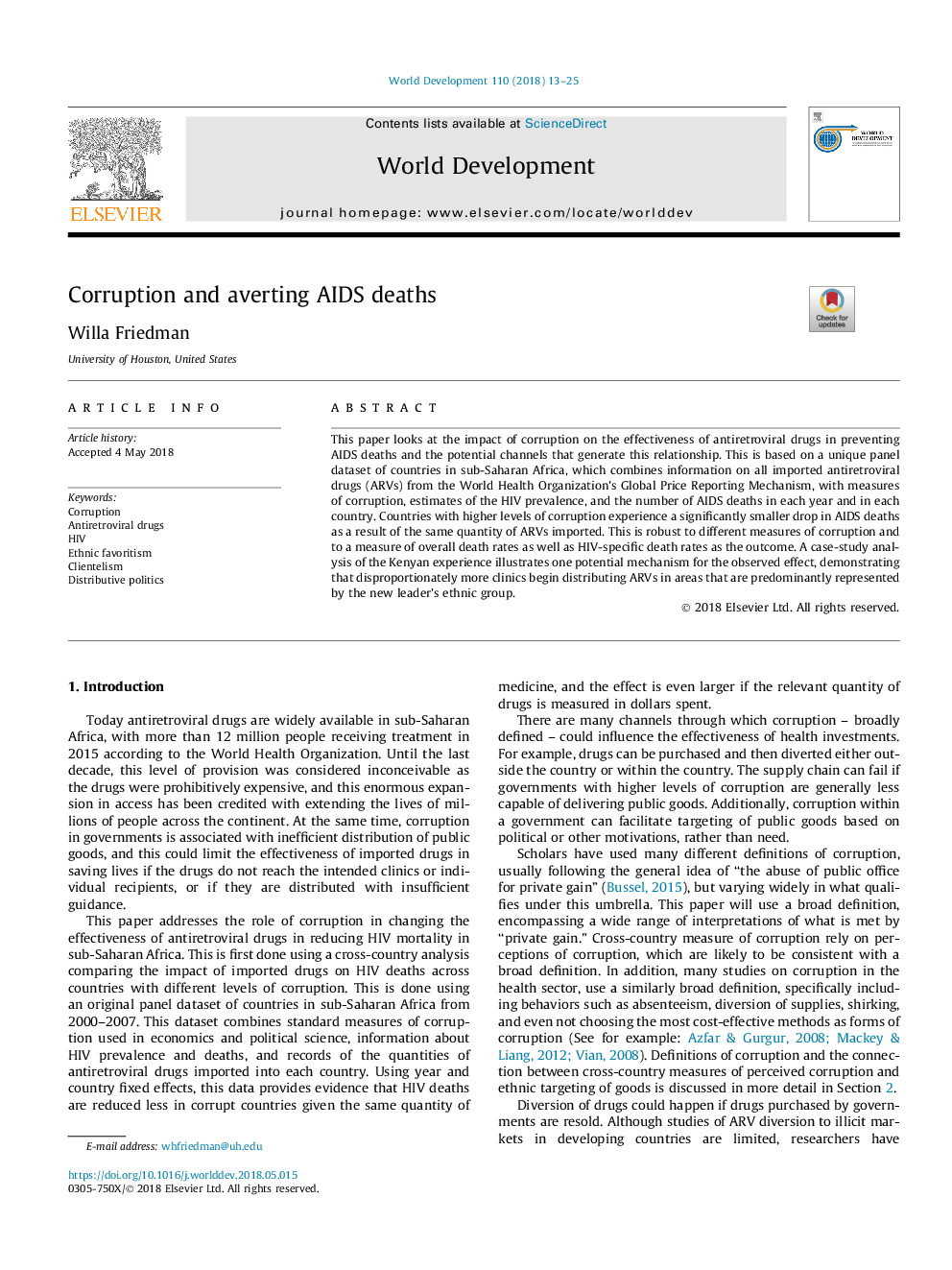| Article ID | Journal | Published Year | Pages | File Type |
|---|---|---|---|---|
| 7391217 | World Development | 2018 | 13 Pages |
Abstract
This paper looks at the impact of corruption on the effectiveness of antiretroviral drugs in preventing AIDS deaths and the potential channels that generate this relationship. This is based on a unique panel dataset of countries in sub-Saharan Africa, which combines information on all imported antiretroviral drugs (ARVs) from the World Health Organization's Global Price Reporting Mechanism, with measures of corruption, estimates of the HIV prevalence, and the number of AIDS deaths in each year and in each country. Countries with higher levels of corruption experience a significantly smaller drop in AIDS deaths as a result of the same quantity of ARVs imported. This is robust to different measures of corruption and to a measure of overall death rates as well as HIV-specific death rates as the outcome. A case-study analysis of the Kenyan experience illustrates one potential mechanism for the observed effect, demonstrating that disproportionately more clinics begin distributing ARVs in areas that are predominantly represented by the new leader's ethnic group.
Related Topics
Social Sciences and Humanities
Economics, Econometrics and Finance
Economics and Econometrics
Authors
Willa Friedman,
